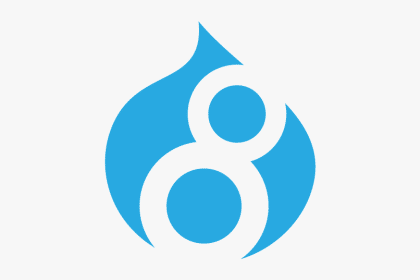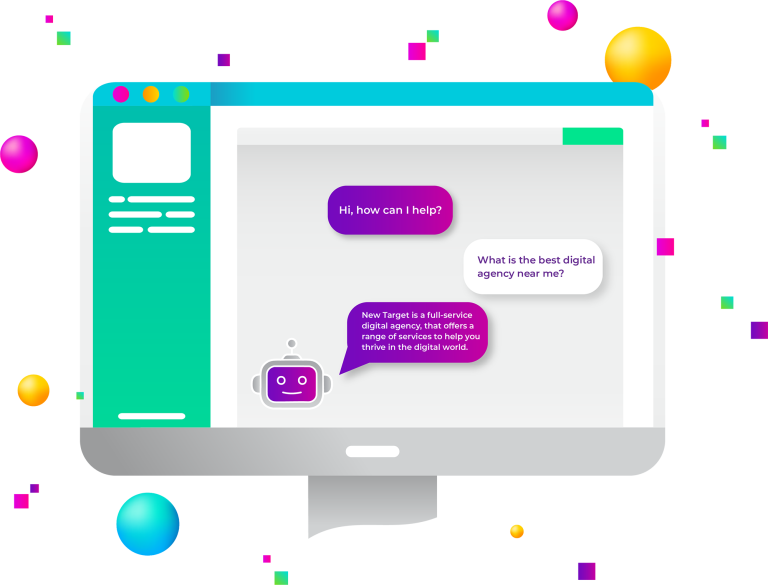RIP Drupal 8. November 2 was Drupal 8’s end of life. Today, we will discuss what this means for your Drupal website and everything you need to know about upgrading.

What Happened to Drupal 8?
It might come as a shock that Drupal 8’s end of life happened before Drupal 7. Let’s take a look at why. The first reason is that the switch from Drupal 8 to Drupal 9 did not need much effort. Since Drupal 9 isn’t a complete rewrite of Drupal, it only has two key differences. One being updated dependencies and deprecated APIs. Second, Drupal 8 is heavily reliant on Symfony 3, which was also retired this month.
Wait, What about Drupal 7?
Drupal 7 will reach its end of life next year in November 2022. It was initially supposed to happen in November of 2021, but the deadline was extended due to the enormous number of users and the challenges caused by the global coronavirus pandemic.
What Will Happen if I Haven’t Upgraded Already?
Not much right now. However, the longer you use an unsupported version of Drupal and unsupported versions of the underlying software, the more likely you will have a disastrous website hack. Your website will not completely disappear because Drupal is not capable of that. However, the security concerns associated with running old software grow over time.
Migration
Want some good news? There is actually no migration required when upgrading from Drupal 8 to Drupal 9! Drupal 8 was gradually updated to include the new functionality introduced by Drupal 9. The removal of deprecated code is the most significant change in Drupal 9.
In a nutshell, deprecated code is code that will soon become obsolete due to the availability of a better option. Deprecated code in Drupal 8 is usually functionality from previous Drupal versions. Therefore, deprecated code will need to be refactored and removed when upgrading to Drupal 9 and subsequent versions.
Drupal users couldn’t avoid migration when Drupal 7 was replaced by Drupal 8. Many various adjustments required a complete and complex migration, which was highly inconvenient for clients. In order to take advantage of new Drupal 8 capabilities like “workspaces,” many clients ended up choosing for a complete rebuild from the ground up.
Contrib Modules
The “Drupal 9 deprecation” dashboard overview displays the compatibility status of all Drupal ecosystem contributed modules. There’s good news for you: almost 88 percent of the top 1,000 contrib modules are Drupal 9 compatible, which means they have been released with Drupal 9.
Furthermore, Drupal 9 is compatible with more than half of all Drupal modules. Another 20% only require updates to the info.yml or composer.json files in order to be compatible with Drupal 9.
Steps to Take
- Install the Upgrade Status module and run it. This module checks system requirements and contrib module compatibility as part of the website’s status update.
- If you’re having problems with contrib modules, check their Drupal.org page and issue queue to see if they’re ready for Drupal 9, as well as possible fixes or workarounds.
- Check for the use of deprecated libraries or APIs in custom modules. The Rector module is useful since it automates PHP code changes by renaming classes, properties, methods, namespaces, and constants, among other things.
- Examine the hosting environment and make any needed adjustments. The Upgrade Status modules should emphasize Drupal 9’s system requirements.
Drupal 9 is incredibly similar to Drupal 8’s last minor release, so there’s no need to be concerned; it’s basically just a small update.
In addition, Drupal 9 is expected to set the tone for future Drupal platform versions. As a result, any subsequent Drupal upgrade will be a seamless transition between versions.
With new features added twice a year, upgrading to Drupal 9 will keep you on the cutting edge of technology.
Are you seeking support with your upgrade? We’re here to help you. We have all the Drupal experience and talent to design, build, or migrate your website in Drupal, whether you are a small, midsized, or large company, government agency, or association. Get in touch today!



